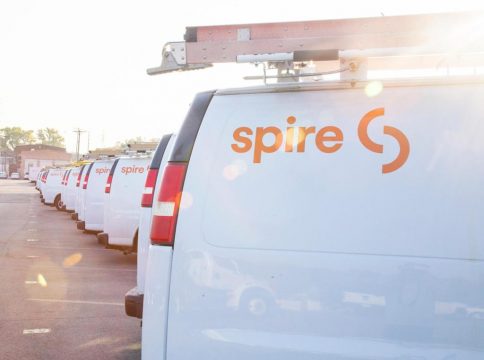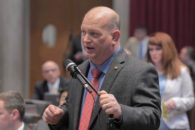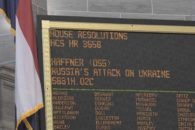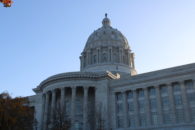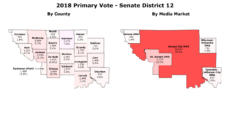Utility companies, including Spire Missouri, are examining ways to dampen the impact of last month’s devastating winter storms on customers’ bills.
Scott Carter, president of Spire Missouri, said ratepayers would see an increase on their bills to compensate for the cold weather event starting in the fall, but the company plans to spread the cost over the next few years rather than increase rates all at once.
“If you’re looking at 15 or 25 percent as an annual number, we spread that out over three years and make it a 5 to 7 percent impact a year, that would be a remarkable outcome,” Carter told The Missouri Times. “We don’t expect this to occur again within the timeframe, and natural gas prices are still low and stable, so it seemed like a reasonable approach to manage the challenges of this winter.”
Spire presented its plan alongside other gas companies at a Public Service Commission (PSC) workshop this week. PSC Chairman Ryan Silvey said the commission hoped for some perspective on the impact and fallout of the extreme weather event.
“We’ve all heard about the unprecedented impact, but it wasn’t just the power sector that was affected by the event; it was the heating sector as well,” Silvey said. “I think the impact on natural gas utilities and their customers is not yet fully understood so the intent is to open an investigatory docket to allow the commission, customers, and other stakeholders to have a clearer picture of what the cause and impacts of the cold weather event were.”
Winter storms struck the midwest in February, forcing companies to initiate rolling blackouts and leaving parts of the state without power. Spire was among the utility companies advising customers to cut down on energy use during the storm to preserve both the supply and their monthly bills.
“In general, we felt like we were well-positioned for the weather event,” Carter said. “There’s a pretty universal theme that we’re all committed to finding ways to mitigate that impact on our customers; that’s the important thing for us to focus on right now.”
The western part of Spire’s service area is expected to see a 25 percent total increase to recoup the cost of the event, while the eastern section of Missouri is set to see 15 percent. Carter said a recently-built pipeline in St. Louis and the cost of natural gas created the disparity, a lesson the company would take into consideration as it prepares for the future.
“This event showed the value of planning, which really helped,” he said. “Our goal immediately is to make sure we’re looking for ways to lessen the impact on customers and spread it out over time, and we’ll also focus on learning from this and looking for opportunities to reinforce our system and other things we can do to make sure that, if these events occur again, we’re in a good position. That’s our commitment, and we certainly think it’s something we can work through and learn about from this event.”
The commission recently ordered its Regulatory Analysis and Customer Experience departments to compile a report based on the findings of Missouri’s regional transmission organizations (RTOs) and the Federal Energy Regulatory Commission (FERC) on the preparation and response of Missouri utilities to the event. The report is due April 22 and will be distributed to county commissions and the General Assembly.

Cameron Gerber studied journalism at Lincoln University. Prior to Lincoln, he earned an associate’s degree from State Fair Community College. Cameron is a native of Eldon, Missouri.
Contact Cameron at cameron@themissouritimes.com.

